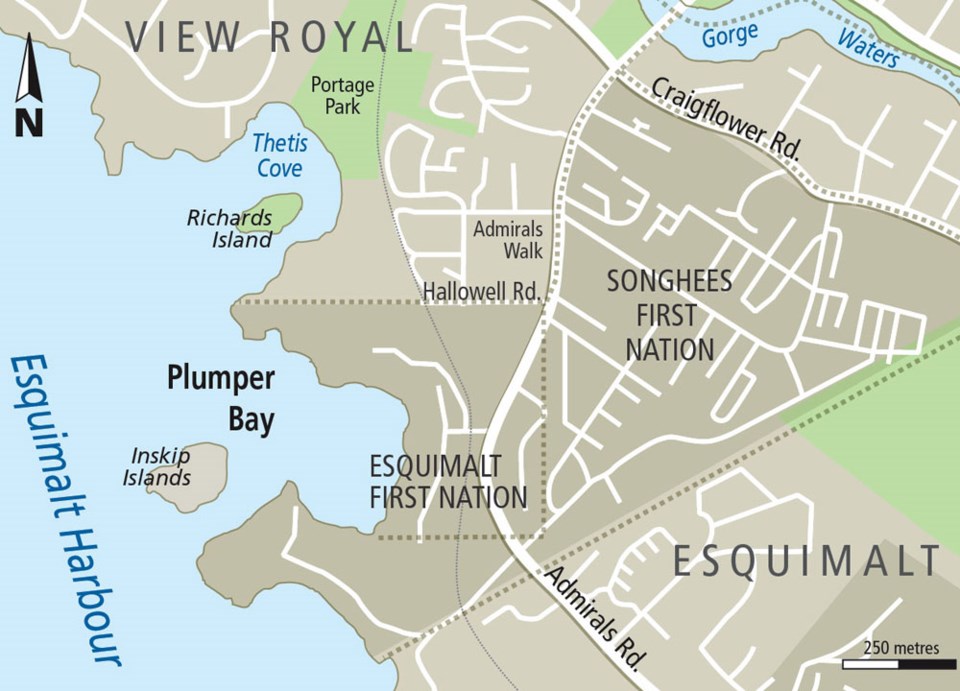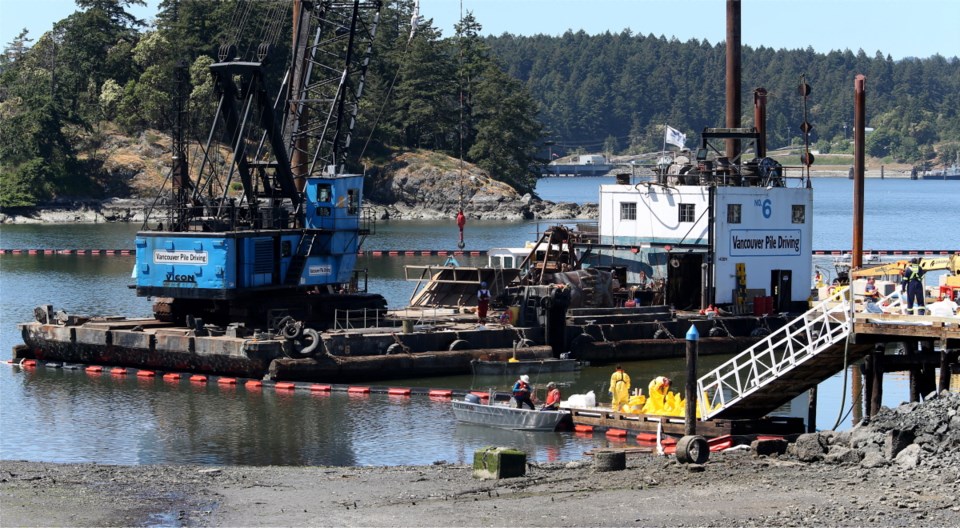Some diesel still remains at a beach near Esquimalt Harbour, but cleanup efforts are complete, the Canadian Coast Guard says.
Plumper Beach, located near Admirals Walk, became the focus of a cleanup after a barge spilled about 30,000 litres of diesel into the harbour in May.
The beach, which shared by the Esquimalt and Songhees First Nations, remains closed and a fishing ban in effect.
Michelle Imbeau, a spokeswoman for the Canadian Coast Guard, said the on-water cleanup was completed in May. The cleaning of the beaches and sediment is also finished, she said.
The Canadian Coast Guard is the lead federal agency for all ship-source oil spills or pollution incidents in Canadian waters.
“The remaining diesel from this specific spill will continue to dissipate over the next several months,” Imbeau said.
She would not say how much diesel remains or when the beach cleanup was deemed complete.
Vancouver Pile Driving, the company responsible for the spill, has agreed to 24 months of monitoring, which has been approved by Environment Canada, Imbeau said.
On May 8, a Vancouver Pile Driving barge broke loose in high winds, running aground in Plumper Bay. It was one of the largest spills in recent West Coast history.
The company has declined to comment since May. A spokeswoman said the company plans to put out a statement soon.
All fishing and crabbing is banned in Esquimalt Harbour, and Plumper Beach remains closed, based on an advisory from the First Nations Health Authority. The authority said it will lift the advisory when it receives sampling data showing no risk to human health.
Imbeau said recent samples are still being analyzed. She did not say whether any previously collected samples had been submitted by the company.
She also said the area — formerly home to sawmills and log booms — was already polluted.
“It should be noted that the area contains significant pre-existing pollution. It was not seen as a reasonable measure to require the polluter from the May 8 diesel spill to clean up this pre-existing pollution,” Imbeau said.
Contamination in Esquimalt Harbour has also come from sandblasting activities at the graving docks, as well as manufacturing, shipbuilding, transportation and other industrial activities.
Esquimalt Chief Andy Thomas said last week that before the spill, the area had started to rebound from industrial pollution. Plumper Bay has historically been an important source of food, including clams, ducks, geese and fish, for First Nations.
A bivalve shellfish fishery closure was in effect prior to the spill.




